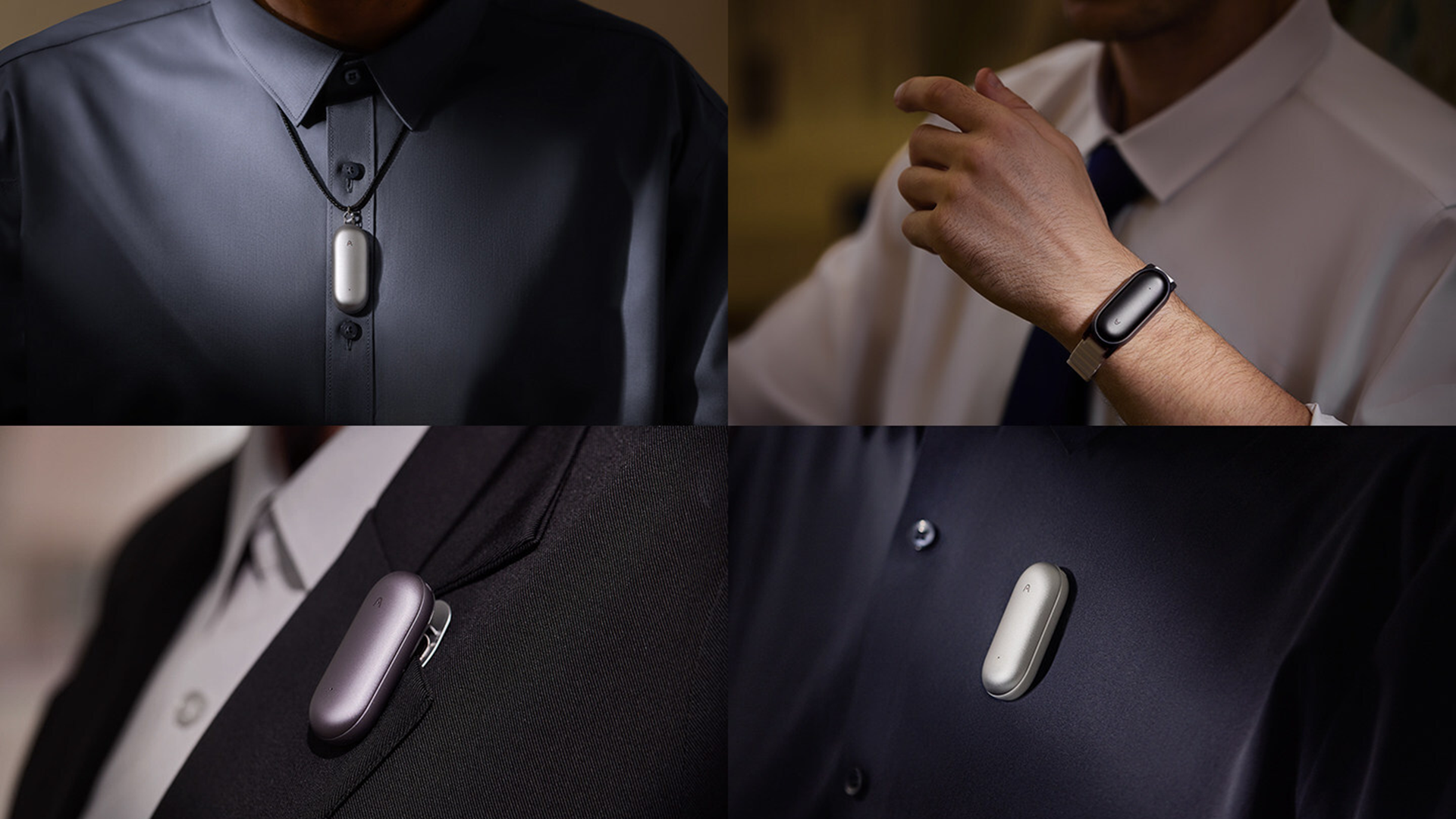A new AI wearable to supplement your memory is happy to tread where other AI hardware failed
The Plaud.AI NotePin is the intelligent Dictaphone of 1992's dreams

The current era of AI has produced plenty of impressive products but it's hard to point to any AI-centered hardware that can match the popularity of software like ChatGPT despite occasional spikes in hype around one device or another. The new NotePin wearable from Plaud.ai seeks to fill that void by acting as a "memory capsule" to record, transcribe, and summarize your conversations and private monologues.
At $169, the NotePin does at least offer some flexibility in how it adorns your body. As seen in the image above, it's not only a pin or clipped onto your jacket but can be worn as a necklace or fit into a wristband. Once activated, the NotePin records and transmits audio to the Plaud app to be transcripted, summarized, or even turned into a visual mind map if you choose. The transcriptions are composed using OpenAI's Whisper tool, but you get to choose between OpenAI's GPT-4o or Anthropic's Claude 3.5 Sonnet model for the summarization and analysis, should you have a preference. Plaud.AI also hinted at more AI model options to come.
The NotePin doesn't record automatically. You can turn it on and off as you choose. You also have to pick the format of notes it will take for you, though Plaud.AI claims the device will adapt to your preferences over time. You get 300 minutes of transcription a month, though you can pay $79 a year for the Pro Plan and get 1,200 minutes per month and other features.
"Plaud NotePin is more than just an AI device," said Plaud.AI CEO Nathan Hsu. "It's your always-ready business partner, handling mundane, daily tasks so you can concentrate on what truly drives value in your life and career. This small but powerful device is reshaping the professional landscape, allowing users to optimize their day-to-day workflow and focus on what matters most."
AI Hardware is Hard
If a pin recording your day and analyzing it with AI sounds familiar, that’s because it’s pretty much the pitch for the Humane AI Pin and pretty similar to the Rabbit R1 device that garnered a lot of excitement, if only for a brief time. As with those devices, the biggest question is whether AI hardware is worth it when you have a smartphone with AI apps available. Even the wearable element may not be that enticing if the next generation of smartwatches can perform the same recording and transmitting functions.
Plus, the NotePin’s reliance on cloud services for AI processing is a potential drawback for those worried about data privacy. Plaud.AI boasted that its encryption and other security protocols protect user data, but considering the all-too-common story of data breaches, people may not want to commit their conversations, let alone inner musings, to the cloud. That’s not to say the NotePin might not beat the odds and become a popular accessory, but it might take more than a sleek design to convince people they can’t live without an AI-enabled microphone on their lapel.
You might also like...
- Rabbit R1 is a beautiful mess that I'm not sure anyone needs
- Survey says AI is more buzzkill than buzzword for marketing
- Humane AI Pin review roundup: an undercooked flop that's way ahead of its time
Sign up for breaking news, reviews, opinion, top tech deals, and more.

Eric Hal Schwartz is a freelance writer for TechRadar with more than 15 years of experience covering the intersection of the world and technology. For the last five years, he served as head writer for Voicebot.ai and was on the leading edge of reporting on generative AI and large language models. He's since become an expert on the products of generative AI models, such as OpenAI’s ChatGPT, Anthropic’s Claude, Google Gemini, and every other synthetic media tool. His experience runs the gamut of media, including print, digital, broadcast, and live events. Now, he's continuing to tell the stories people want and need to hear about the rapidly evolving AI space and its impact on their lives. Eric is based in New York City.
